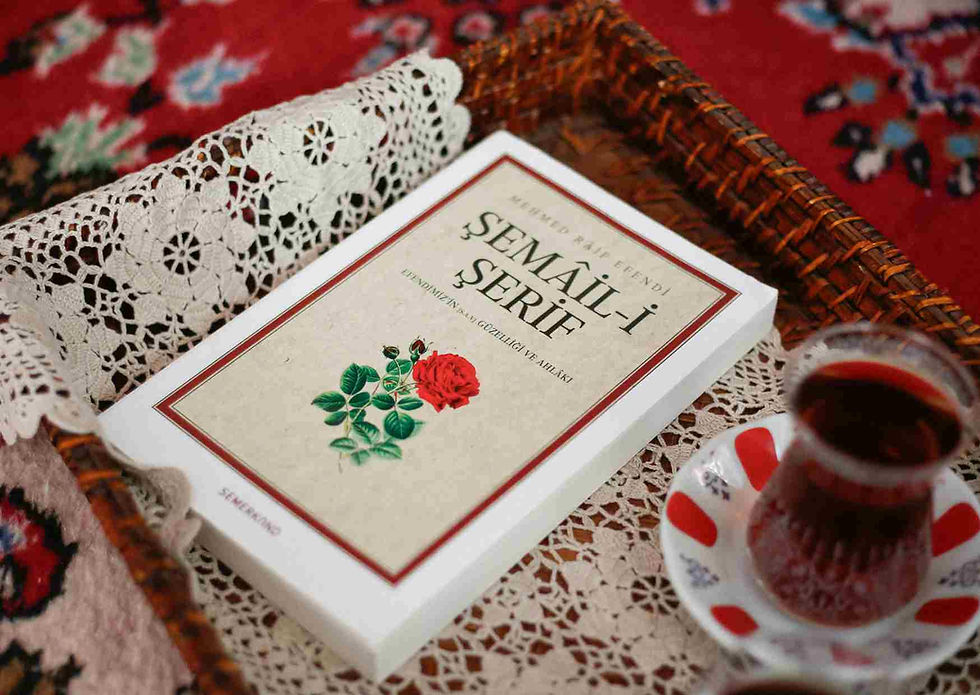"WOMEN WRITERS - CELEBRATING FEMALE VOICES IN LITERATURE": DE MODE OF LITERATURE
- DE MODE

- Feb 28, 2024
- 3 min read
ORIGINALLY PUBLISHED IN DE MODE | LITERATURE
Article Published on: 28TH FEB 2024 | www.demodemagazine.com
Throughout history, women writers have played a vital role in shaping the literary landscape, offering unique perspectives, insights, and voices that enrich our understanding of the human experience. From the pioneering works of the Brontë sisters to the groundbreaking prose of Virginia Woolf and the contemporary brilliance of Chimamanda Ngozi Adichie, women writers have defied convention, challenged norms, and shattered barriers, leaving an indelible mark on literature and culture. In this exploration, we celebrate the enduring legacy of three remarkable female voices whose contributions continue to resonate with readers around the world.
The Brontë Sisters: Trailblazers of Romanticism and Realism
The Brontë sisters—Charlotte, Emily, and Anne—emerge as luminaries of 19th-century literature, defying societal expectations and patriarchal constraints to craft some of the most enduring works in the English canon. Charlotte Brontë's "Jane Eyre" remains a timeless classic, offering a poignant exploration of identity, independence, and the pursuit of love in the face of adversity. Emily Brontë's "Wuthering Heights" captivates readers with its dark, passionate tale of love and revenge set against the windswept moors of Yorkshire, while Anne Brontë's "The Tenant of Wildfell Hall" challenges Victorian notions of femininity and morality with its unflinching portrayal of a woman's struggle for autonomy and self-expression.
Through their masterful prose and vivid characterizations, the Brontë sisters forged a path for future generations of women writers, demonstrating the transformative power of storytelling to illuminate the depths of the human soul and confront the injustices of society.

Virginia Woolf: A Visionary of Modernist Literature
In the early 20th century, Virginia Woolf emerged as a pioneering voice of modernist literature, revolutionizing the form and structure of the novel with her innovative narrative techniques and psychological insight. In works such as "Mrs. Dalloway," "To the Lighthouse," and "Orlando," Woolf explores themes of memory, consciousness, and the fluidity of identity, inviting readers to navigate the inner landscapes of her characters' minds with empathy and nuance.
Woolf's groundbreaking essay "A Room of One's Own" remains a seminal text on feminism and creative freedom, challenging the patriarchal norms that have long hindered women's access to education, autonomy, and artistic expression. Through her probing intellect and lyrical prose, Woolf shattered the boundaries of traditional storytelling, opening new vistas of possibility for future generations of writers and thinkers.

Chimamanda Ngozi Adichie: Champion of Diversity and Empathy
In the 21st century, Chimamanda Ngozi Adichie has emerged as a powerful voice for diversity, equality, and social justice in literature and beyond. Her novels, including "Half of a Yellow Sun," "Americanah," and "Purple Hibiscus," offer searing portrayals of Nigerian society and the complexities of identity, migration, and belonging in a globalized world.
Adichie's TED Talk, "We Should All Be Feminists," has become a rallying cry for gender equality, inspiring audiences around the world to challenge the entrenched biases and stereotypes that perpetuate inequality and injustice. Through her compelling storytelling and unwavering commitment to truth and empathy, Adichie continues to galvanize readers and writers alike, urging us to confront the complexities of our shared humanity with courage, compassion, and resilience.

Conclusion
The legacies of Charlotte, Emily, and Anne Brontë, Virginia Woolf, and Chimamanda Ngozi Adichie endure as a testament to the enduring power of women's voices in literature. From the windswept moors of 19th-century England to the bustling streets of modern-day Lagos, these writers have fearlessly explored the depths of human experience, challenging conventions, and expanding the boundaries of artistic expression.
As we celebrate their contributions to literature and culture, we are reminded of the transformative potential of storytelling to illuminate our shared humanity, inspire empathy, and ignite social change. In the words of Virginia Woolf, "For most of history, Anonymous was a woman." Today, we honor these remarkable women writers who have dared to lend their names and voices to the pages of history, enriching our lives and expanding our understanding of the world one word at a time.



Comments